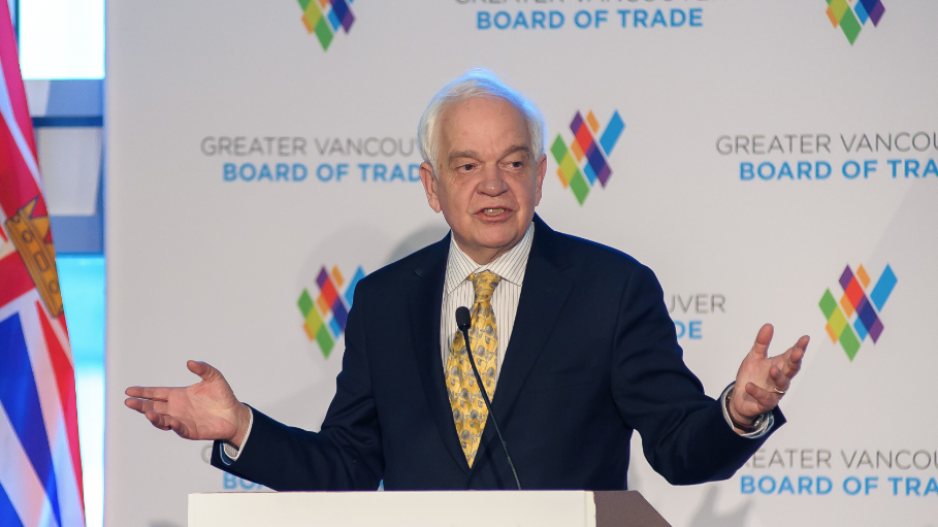Canada’s immigration minister left the door open to expanding the much-diminished temporary foreign worker program in the future during a talk to a business audience in Vancouver on March 18.
But John McCallum said his ministry is currently more focused on the Syrian refugee effort, increasing the number of family reunification immigrants and making it easier for international students to become permanent residents.
“I think on temporary foreign workers, the country went from one extreme to the others,” McCallum said to members of the Greater Vancouver Board of Trade.
“Some years ago, the previous government decided to let everybody in and there was a time when there were more TFWs than permanent residents.”
After serveral media reports of employers abusing the program, “suddenly government went to the other extreme. Almost nobody could get in, it was so tight,” said McCallum. “The right place is some happy medium between the two.”
McCallum also said he believed it was important that when temporary foreign workers are allowed in, they are set on the path to permanent residency — something that was not an option for low-skilled workers under the previous program.
McCallum’s ministry, with the new name of Immigration, Refugees and Citizenship Canada, is steering the department in a significantly different direction than the Conservatives took.
The Liberals campaigned on a promise to dramatically increase the number of Syrian refugees Canada accepts, and met their target of 25,000 refugees brought to Canada by the end of February.
They also aim to increase the number of immigrants entering Canada through the family reunification stream, a program with significant backlogs, McCallum said. That means Canada will accept fewer economic-class immigrants this year, because while IRCC plans to bring in 20,000 more immigrants this year compared to 2015, the department only has the capacity to bring in 300,000 a year.
“We’ve moved from a system that was maybe half economic immigration 20, 30 years ago, to 60% and eventually the goal was to get it to 70%,” said Dan Hiebert, a professor at the University of British Columbia who specializes in immigration policy.
“What this did was create quite substantial limits on humanitarian and family immigrants and we saw a very long backlog of family reunification cases.”
McCallum also promised to make it easier for international students to become Canadian citizens, by restoring a credit towards citizenship for time spent in Canada he said the Conservatives had taken away and making it easier for students to become permanent residents.
“We have to court the international students, we don’t want to punch them in the nose,” he said.
@jenstden




